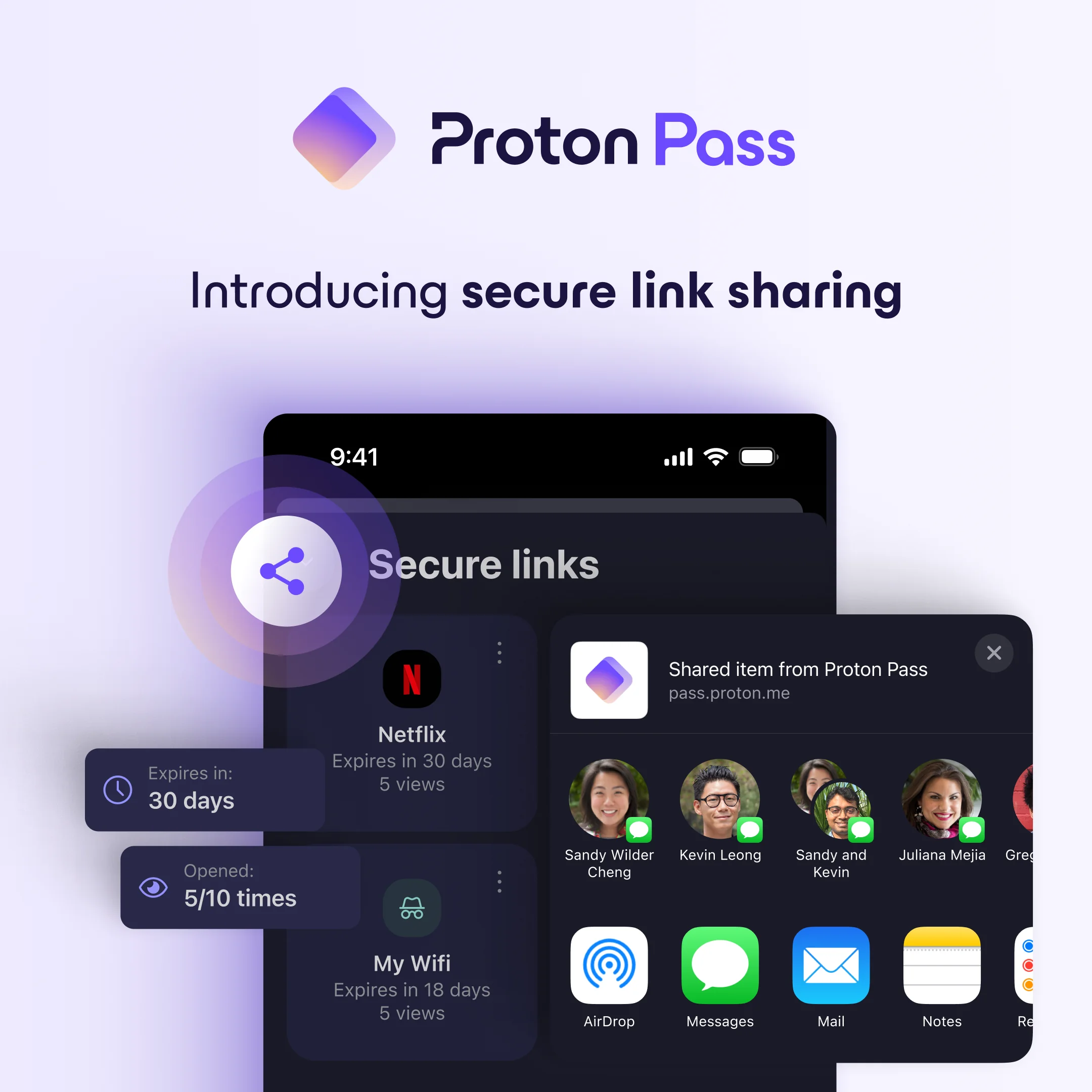Proton
Empowering you to choose a better internet where privacy is the default. Protect yourself online with Proton Mail, Proton VPN, Proton Calendar, Proton Drive. Proton Pass and SimpleLogin.
Proton Mail is the world's largest secure email provider. Swiss, end-to-end encrypted, private, and free.
Proton VPN is the world’s only open-source, publicly audited, unlimited and free VPN. Swiss-based, no-ads, and no-logs.
Proton Calendar is the world's first end-to-end encrypted calendar that allows you to keep your life private.
Proton Drive is a free end-to-end encrypted cloud storage that allows you to securely backup and share your files. It's open source, publicly audited, and Swiss-based.
Proton Pass Proton Pass is a free and open-source password manager which brings a higher level of security with rigorous end-to-end encryption of all data (including usernames, URLs, notes, and more) and email alias support.
SimpleLogin lets you send and receive emails anonymously via easily-generated unique email aliases.
view the rest of the comments

Imagine I send my friend a password for something. If I put the password in a text message, it will probably still be sitting in their text messages for the next several years. A copy of the password will be on their phone, their text provider's servers, and maybe various middlemen servers, I don't know. That information could be accessed by a hacker, rogue employee, or third person who is using the friends device (or a court!) not just when it's sent, but years in the future.
If I send a link like this proton one, the link itself will have the same problems as a plaintext password would. The difference is that I, the user, retain control over whether that link leads to anything. I can turn off the link so even though some adversary has it, it's useless to them.
What this does not protect against is if the intended recipient misuses the sensitive information, but that's a different problem.